
Tumour Virus Research
Scope & Guideline
Connecting the dots between infection and cancer.
Introduction
Aims and Scopes
- Oncogenic Mechanisms of Viruses:
Research on how specific viruses, such as HPV, EBV, and others, contribute to cancer development by manipulating host cellular mechanisms. - Diagnostic and Screening Innovations:
Studies aimed at improving diagnostic techniques for detecting viral infections and associated cancers, including the use of methylation tests and salivary diagnostics. - Epidemiological Trends and Public Health:
Investigations into the prevalence of viral infections and their impact on cancer rates, particularly in low-to-middle income countries. - Therapeutic Strategies and Vaccination:
Research into the development of vaccines and immunotherapies that target viral infections associated with cancer. - Molecular Characterization of Viral Genomes:
In-depth analyses of viral genome structures and their variations, exploring how these contribute to the pathogenicity of tumor viruses.
Trending and Emerging
- Integration of Machine Learning in Diagnostics:
The use of machine learning and artificial intelligence to develop predictive models for cancer diagnostics related to viral infections is gaining traction, reflecting a broader trend in precision medicine. - Viral RNA and miRNA Roles in Tumor Biology:
Research focusing on the roles of viral miRNAs and their regulatory functions in cancer cells is emerging, indicating a growing interest in non-coding RNAs and their implications in oncogenesis. - Public Health Impact of Vaccination Programs:
There is an increasing emphasis on evaluating the effectiveness of HPV vaccination programs and their role in reducing cancer incidence, particularly in underrepresented populations. - Interplay Between Viral Infections and Immune Response:
Emerging studies exploring how viral infections influence immune responses in cancer patients are becoming more prominent, highlighting the importance of immunology in viral oncology. - Characterization of Viral Proteins and Their Functions:
The detailed study of viral proteins, such as the HPV E6 and E7 proteins, and their multifaceted roles in cellular processes related to cancer development is a growing area of focus.
Declining or Waning
- Traditional Cancer Treatment Approaches:
Research focusing on conventional chemotherapy and radiotherapy approaches in the context of virus-associated cancers appears to be declining, possibly due to the increasing focus on targeted therapies and immunotherapy. - Basic Virology without Cancer Context:
Studies that primarily address general virology without a direct link to cancer implications have become less common, as the journal emphasizes research that connects viral mechanisms to oncogenesis. - Historical Epidemiological Studies:
Older epidemiological studies that do not incorporate recent data or advancements in vaccination strategies are becoming less frequent, as newer studies focus on contemporary public health challenges and vaccination campaigns.
Similar Journals

VIRUS GENES
Connecting Science and Health Through Viral GeneticsVIRUS GENES is an esteemed journal published by Springer, dedicated to advancing our understanding of virology and its related fields, including genetics, molecular biology, and immunology. With a publication history that spans from 1987 to 2024, this journal provides researchers and professionals with a platform to disseminate high-quality, peer-reviewed articles that explore the intricacies of viral genetics and their implications in health and disease. With an impact factor placing it in the Q3 quartile across multiple categories in 2023, including Genetics and Virology, VIRUS GENES serves as a crucial resource for academics seeking to stay at the forefront of viral research. Its commitment to showcasing innovative research makes it an invaluable asset for students and professionals aiming to deepen their knowledge in the rapidly evolving landscape of virology. Although currently not offering Open Access, the journal ensures wide accessibility through institutional subscriptions, thereby playing a vital role in the collaboration between scientists globally.
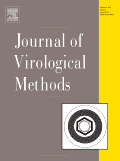
JOURNAL OF VIROLOGICAL METHODS
Empowering researchers with cutting-edge virological techniques.Journal of Virological Methods, published by Elsevier, is a prominent peer-reviewed journal dedicated to advancing the methodologies employed in virology research. Since its inception in 1980, this esteemed journal has become a vital resource for researchers, professionals, and students focused on the intricate study of viruses and viral-related diseases. With a current ISSN of 0166-0934 and an E-ISSN of 1879-0984, this journal strives to present innovative techniques and tools that enhance our understanding of virology. Designed for a global audience, it operates in a rigorous academic environment, as reflected by its 2023 Scopus ranking of #40 in the Virology category and its Q3 quartile placement. The journal is committed to fostering open dialogue and collaboration within the scientific community, ultimately contributing to the development of novel strategies and interventions against viral infections. By offering comprehensive insights into virological methodologies, the Journal of Virological Methods continuously serves as a cornerstone for those dedicated to exploring the complexities of viral research.
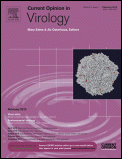
Current Opinion in Virology
Connecting Research with Clinical Innovation in VirologyCurrent Opinion in Virology, published by Elsevier Science Ltd, is a premier journal dedicated to advancing knowledge in the dynamic field of virology. Established as a respected source of comprehensive reviews and critical evaluations, this journal boasts an impressive impact factor and has achieved a distinguished Q1 category ranking for virology, signifying its pivotal role in the academic community. Serving researchers, professionals, and students alike, Current Opinion in Virology presents insightful contributions that delve into the latest developments, emerging trends, and pivotal challenges facing virology today. With its Scopus ranking placing it in the top 15% of its field, the journal provides unparalleled access to cutting-edge research that informs both basic and applied aspects of virology. Although not an open-access journal, it offers options for subscriptions that ensure accessibility to critical content. As the field continuously evolves, Current Opinion in Virology remains at the forefront, bridging the gap between research and clinical application, making it an essential resource for all in the virology community.
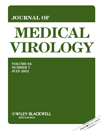
JOURNAL OF MEDICAL VIROLOGY
Transforming Knowledge: Where Virology Meets Innovation.JOURNAL OF MEDICAL VIROLOGY is a prestigious academic publication dedicated to advancing the field of virology and infectious diseases. Published by WILEY, this journal has established itself as a cornerstone within the scientific community since its inception in 1977, and it will continue to provide cutting-edge research until 2024. With an impressive impact factor that places it in the Q1 quartile for both Infectious Diseases and Virology, the journal ranks 14 out of 344 in Medicine - Infectious Diseases and 6 out of 80 in Immunology and Microbiology - Virology according to Scopus metrics. Its focus encompasses a broad spectrum of topics, including viral pathogenesis, diagnostics, treatment strategies, and epidemiology, making it an essential resource for researchers, clinicians, and students alike. Although not an open-access journal, it provides valuable insights and accessible content for subscribers and libraries. The ongoing commitment to high-quality peer-reviewed articles makes JOURNAL OF MEDICAL VIROLOGY a vital platform for disseminating knowledge and fostering innovation in virology and related fields.
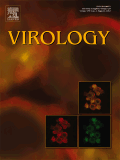
VIROLOGY
Unraveling the Complexities of VirusesVirology, published by Academic Press Inc. Elsevier Science, is a prominent journal dedicated to advancing the knowledge and understanding of viral biology and pathogenesis since its inception in 1955. With a distinguished impact factor and recognized as a Q2 journal in the field of Virology for 2023, it ranks 38 out of 80 in the Scopus database for Immunology and Microbiology, placing it in the 53rd percentile among similar publications. This esteemed journal provides a platform for groundbreaking research, critical reviews, and comprehensive studies that contribute to our global understanding of viruses and their impact on health and disease. Although currently not an open-access journal, it remains accessible to a wide audience of researchers, professionals, and students who are keen to explore the latest advancements in virological research. The journal's scope encompasses a diverse range of topics, ensuring that it serves as an essential resource for anyone engaged in virology and related biomedical fields.

Virology Journal
Advancing the frontiers of virology research.Virology Journal, published by BMC, stands as a prominent open-access platform since 2004, dedicated to advancing the field of virology and infectious diseases. With its E-ISSN: 1743-422X, this journal is based in the United Kingdom and strives to disseminate high-quality research that enhances our understanding of viral pathogens and their interactions with hosts. Recognized with a Q1 classification in the category of Infectious Diseases and a Q2 in Virology for 2023, Virology Journal holds significant standing in the academic community, ranking #82/344 in Medicine - Infectious Diseases and #26/80 in Immunology and Microbiology - Virology. Its commitment to open access ensures that cutting-edge research is freely available to researchers, professionals, and students worldwide, fostering collaboration and innovation in the fight against viral diseases. The journal aims to publish original research articles, reviews, and commentaries that will stimulate discourse and spark new ideas within the virology community.

VIRUS RESEARCH
Connecting discoveries in virus biology and medicine.VIRUS RESEARCH is a leading journal dedicated to the field of virology, published by Elsevier, and has been a cornerstone for researchers, professionals, and students since its inception in 1984. With an impressive impact factor, the journal is highly regarded, holding a Q2 category ranking in both Cancer Research and Infectious Diseases, as well as in Virology for 2023. Based in the Netherlands, it publishes high-quality, peer-reviewed articles that explore the intricate relationships between viruses and their hosts, novel therapeutic strategies, and advancements in virus biology. Researchers will find that it ranks 49th in Medicine - Infectious Diseases and 19th in Immunology and Microbiology - Virology according to Scopus, signifying its significant contribution and relevance in the academic world. VIRUS RESEARCH facilitates a platform for sharing groundbreaking discoveries, forming a vital part of the global scientific community, making it an essential read for those involved in the study of viral pathogens and their implications in medicine and biochemistry.
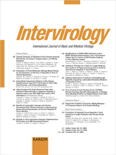
INTERVIROLOGY
Connecting scholars to the latest in viral research.INTERVIROLOGY is a leading academic journal dedicated to advancing the field of virology and infectious diseases, published by KARGER. With a commendable history since its inception in 1973, the journal is currently poised to explore innovative virological research through to 2024. INTERVIROLOGY is indexed with the ISSN 0300-5526 and E-ISSN 1423-0100, reflecting its commitment to maintaining high scholarly standards. The journal is categorized within the Q3 quartile for both Infectious Diseases and Virology as of 2023, demonstrating its relevance and contribution to the academic community. With Scopus rankings placing it as #130 in Infectious Diseases and #41 in Virology, INTERVIROLOGY serves as an essential resource for researchers, professionals, and students seeking cutting-edge insights and discoveries in virology. While it currently operates under a subscription model, its rigorous peer-review process ensures a high quality of published content, making it a cornerstone for those dedicated to understanding and combating viral diseases.

Acta Naturae
Pioneering Insights in Biochemistry and BiotechnologyActa Naturae is a peer-reviewed scientific journal published by the Russian Federation Agency for Science & Innovation, focusing on the dynamic fields of Biochemistry, Biotechnology, Molecular Biology, and Molecular Medicine. Launched in 2013, the journal has established a solid reputation in the academic community, with its articles contributing to essential advancements and discussions within these disciplines. By 2023, it has achieved notable rankings—including Q2 status in Biotechnology and Q3 in Biochemistry, Molecular Biology, and Molecular Medicine—indicating its growing influence and relevance in the scientific literature. While currently operating under a non-open access model, Acta Naturae invites researchers, professionals, and students to engage with its comprehensive research reports and reviews that span the breadth of molecular life sciences. With the aim of facilitating scientific dialogue and innovation, this journal serves as a key resource for those seeking to stay at the forefront of molecular research.

Hepatitis Monthly
Advancing knowledge in hepatology and infectious diseases.Hepatitis Monthly, published by BRIEFLAND in the Netherlands, is a pivotal journal in the fields of hepatology and infectious diseases. Established in 2007, it continues to make significant contributions to the understanding and management of hepatitis and related viral infections with a publication timeline extending through to 2024. Aiming to disseminate high-quality research, the journal serves as a forum for groundbreaking studies and innovations essential for healthcare professionals, researchers, and students alike. While it currently holds Q4 rankings in both hepatology and infectious disease categories, its ongoing commitment to addressing pressing health issues makes it an important resource in the academic community. Although it operates under a traditional access model, Hepatitis Monthly not only publishes original research articles, reviews, and case studies but also encourages the exchange of knowledge that helps shape future research directions and clinical practices. As it continues to explore the complexities surrounding viral hepatitis, this journal invites researchers to contribute to its mission of advancing scientific understanding and improving patient care.